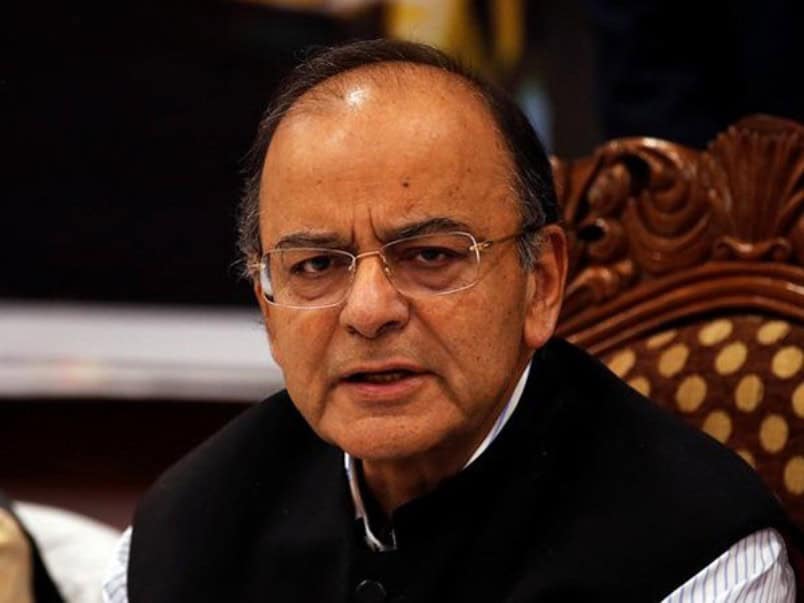New Delhi: Finance Minister Arun Jaitley on Friday said that a broad policy decision has been taken to address the issue of expanding CAD (Current Account Deficit) under which the government will take necessary steps to cut down non-essential imports and also increase exports.
The Finance Minister asserted that maintaining the fiscal deficit remains the government’s top priority and they are confident of maintaining it.
In a meeting chaired by Prime Minister Narendra Modi, five key decisions were taken by the government concerning External Commercial Borrowings (ECBs), Masala bonds, Foreign Portfolio Investment (FPI) among others.
Talking about the first measure, Jaitley informed that in reference to External Commercial Borrowings (ECBs), the mandatory hedging condition for infrastructure loans will be reviewed.
In another measure, the government has also decided to permit manufacturing sector entities to avail external commercial borrowing up to 50 million with a minimum maturity of one year. Previously, this maturity was of three years.
In a third measure to tackle higher current account deficit, a decision has been taken to review removal of exposure limit of 20 percent of FPI’s corporate bond portfolio to a single corporate group i.e company and related entities and 50 percent of any issue of corporate bonds.
Two other significant measures were taken in reference to masala bonds, detailing about which, Jaitley said, “It has been decided that this financial year 2018-19, there will be an exemption from withholding tax for issuance done in this year (up to 31 March 2019). Also, there will be a removal of the restriction on Indian banks, market making in masala bonds, including a restriction on underwriting of masala bonds.”
During the meeting, the RBI Governor, Urjit Patel also gave a detailed presentation on the economic situation of the world and the external factors which can influence the Indian economy.
Detailing upon the same, Jaitley said, “The zest of the presentation was that growth rate of Indian economy, as compared to other world economies, is very high and our inflation is in a moderate range.”
Talking about the effect of external factors on the Indian economy, the Finance Minister said, “As much as external factors are concerned, there are several policy decisions which were taken by the United States because of which the dollars inflow is more towards the US as compared to other economies. Other global factors, including crude oil prices and trade wars also create impact. Despite our fundamentals being strong, these external factors influence economies such as India.”
Jaitley also informed that government is trying to maintain the fiscal deficit and that it is confident of meeting fiscal deficit target. He also said that besides these five decisions, more steps are under consideration.
The meeting was also attended by Finance Minister Arun Jaitley, Finance Secretary Hasmukh Adhia, Department of Economic Affair Secretary Subhash Chandra Garg, RBI Governor Urjit Patel, RBI Deputy Governor, along with other officials of Prime Minister’s Office (PMO).
[source_without_link]ANI[/source_without_link]

